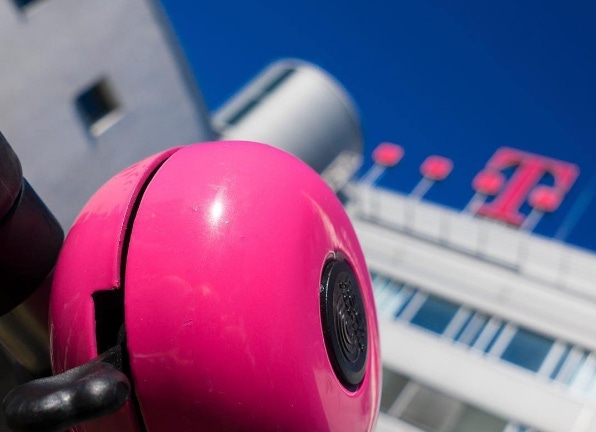Deutsche Telekom has reported a year-on-year decline of 3.9% in total revenues for the first quarter of 2018, and CEO Tim Hoettges has firmly set out his opinions on the Vodafone/Liberty Global merger; he doesn’t like it.
May 9, 2018

Deutsche Telekom has reported a year-on-year decline of 3.9% in total revenues for the first quarter of 2018, and CEO Tim Hoettges has firmly set out his opinions on the Vodafone/Liberty Global merger; he doesn’t like it.
This should hardly be a surprise, as the DT CEO has hardly been quiet in his views on the merger. Questioning the legitimacy of the deal when compared to precedent, and the impact on a healthy, competitive environment will certainly score Hoettges some PR points, but more will be needed. Vodafone and Liberty Global will have anticipated regulatory backlash and prepared documentation to justify the acquisition; Hoettges will have to bring his A-game to prevent this transaction.
“I think this deal is totally unacceptable,” said Hoettges in an interview with Bloomberg. “There was a time where Deutsche Telekom was not allowed to sell our cable businesses in one piece, it would have created a much bigger price. It was sold in three pieces and now these three pieces are coming together in one under the roof of Vodafone.
“We are building the rural Germany with fibre infrastructure, let’s see where Vodafone is going. Are they willing to invest into the rural areas? I haven’t seen anything in their business case today on this subject. The media industry, almost 60% of our TV market is monopolised but this cable operator in the future. Is this good for democracy, is this good for the media companies in this society? So I question it.”
DT is the dominant player in the German market, therefore a passionate and emotional plea to defend this position was expected. Vodafone CEO Vittorio Colao has already launched his oral offensive towards DT, criticizing Hoettges of making self-serving remarks to defend his national monopoly, and it would not be a surprise for this bickering to escalate further.
Despite dip in revenues for the first quarter, DT has decided to raise the forecast for the remainder of the year for a variety of reasons. Firstly, 90% of all DT business is in AAA markets which are all growing healthily. While the environment in Europe more competitive and the ability to scale is much more difficult, Hoettges pointed towards the T-Mobile US tie up with Sprint as a reason to be optimistic. The healthy US business accounts for roughly 50% of profitability across the group, and this is likely to increase increase. T-Mobile US now has 20 consecutive quarters of adding more than one million customers, with Hoettges confident this trend can continue.
Revenues are down across the group, but there are plenty of reasons to be positive here. One guarantee for the future is Hoettges’ continued public condemnation of the Vodafone/Liberty Global merger and the negative impact on competition, though considering the T-Mobile US/Sprint deal is facing the same competition scrutiny, he should preach cautiously.
About the Author(s)
You May Also Like








.png?width=300&auto=webp&quality=80&disable=upscale)


_1.jpg?width=300&auto=webp&quality=80&disable=upscale)


.png?width=800&auto=webp&quality=80&disable=upscale)